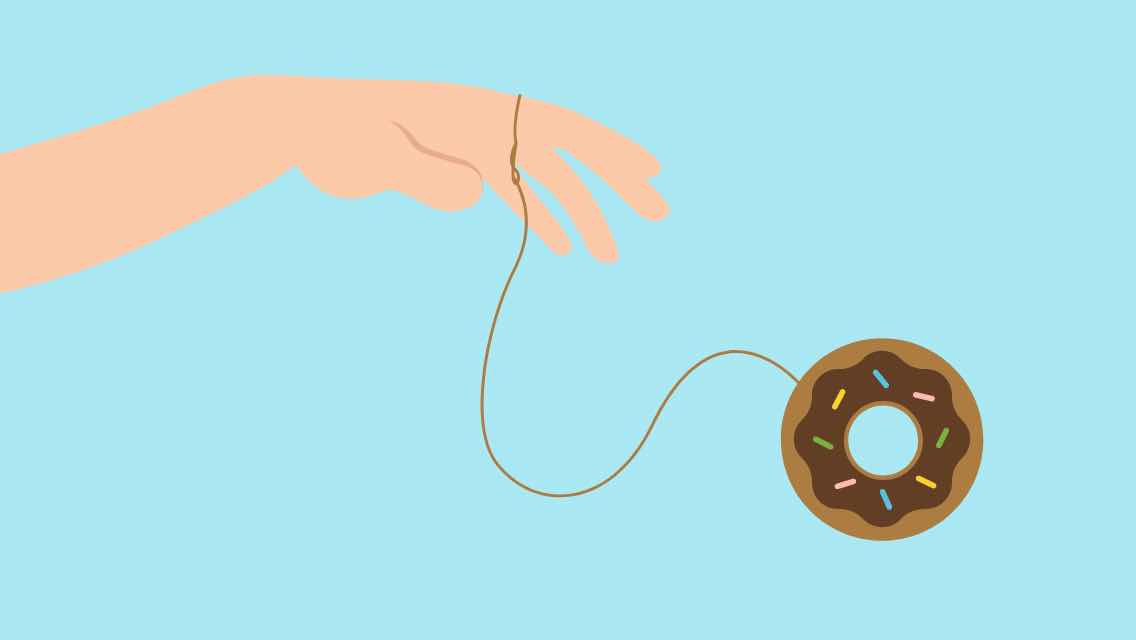1. Overall Weight Gain
“Evidence shows that, instead of leading to reliable weight loss, dieting puts many people on the path to weight gain,” writes Sandra Aamodt, PhD, in Why Diets Make Us Fat. Substantial weight loss increases both hunger and the rewards of eating, in part because of reductions in the satiety-signaling hormone leptin that accompany the loss of body fat. Calorie restriction also increases stress-hormone production, which encourages abdominal-fat storage.
2. Loss of Muscle Mass Plus Increased Body Fat
Whenever you weight cycle, you lose body fat — as well as muscle mass. And what you put back on in the rebounding weight gain is primarily body fat, explains Nashville-based dietitian Ander Wilson, RDN, LDN. “You’re removing lean tissue and adding body fat back to your frame, which is one of several changes that happen in your body during a diet that can ultimately lead to a higher weight than if you did nothing at all.”
3. Increased Cardiovascular-Disease Risk
Large swings in weight have been associated with an increased risk of death from heart disease. One study of 9,509 adults found that the more weight lost and regained, the greater the chance of developing heart disease.
4. Disordered-Eating Patterns
Your body has a finely tuned energy-balance system that helps you regulate your weight without conscious effort — if you can tune in to its signals about what, when, and how much to eat. Yo-yo dieting can make it harder to sense your body’s internal hunger cues, which can lead to food restriction and binge eating, says nutrition coach Lucia Hawley, FNTP, LSW. (For more on intuitive eating, see “8 Tips for Intuitive Eating”.)
5. Elevated Risk of Type 2 Diabetes
Studies have shown that weight cycling impairs glucose metabolism and insulin sensitivity, increasing the risk of developing type 2 diabetes, possibly because of decreased lean body mass and increased production of stress hormones.
6. Fertility Issues
“Yo-yo dieting puts the body in a state of stress, and it responds by down-regulating many of its processes, including hormone production that impacts fertility,” explains Hawley. The type of body fat that weight cycling promotes can also be hormonally active and contribute to hormonal imbalances, which are associated with menstrual disorders.
7. Negative Self-Image
“The biggest problem is what weight cycling does to people emotionally,” says Lindo Bacon, PhD, author of Health at Every Size. “It makes people feel like failures.” And just as restricting calories raises cortisol production, so too does regaining weight, which triggers self-criticism. The elevation in stress hormones is one way that weight cycling increases vulnerability to type 2 diabetes and heart disease.
This originally appeared as “The Downsides of Yo-Yo Dieting” in the September 2020 print issue of Experience Life.





This Post Has 0 Comments